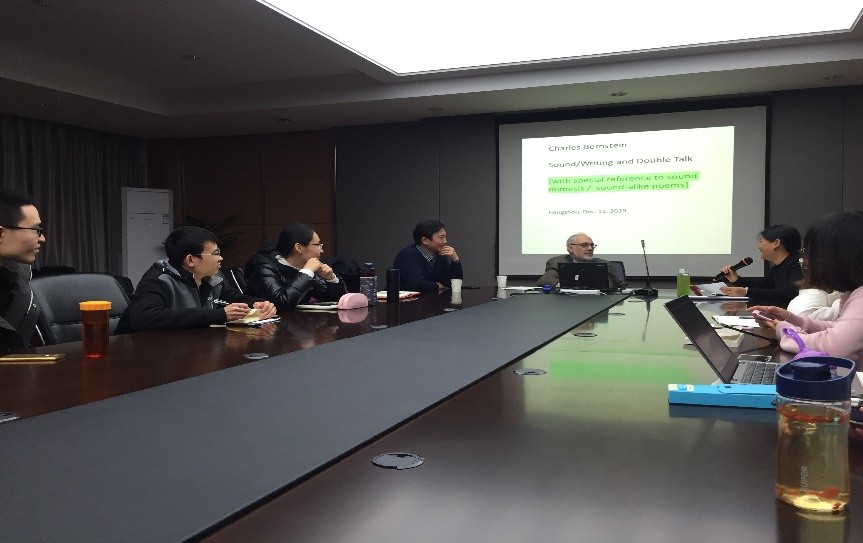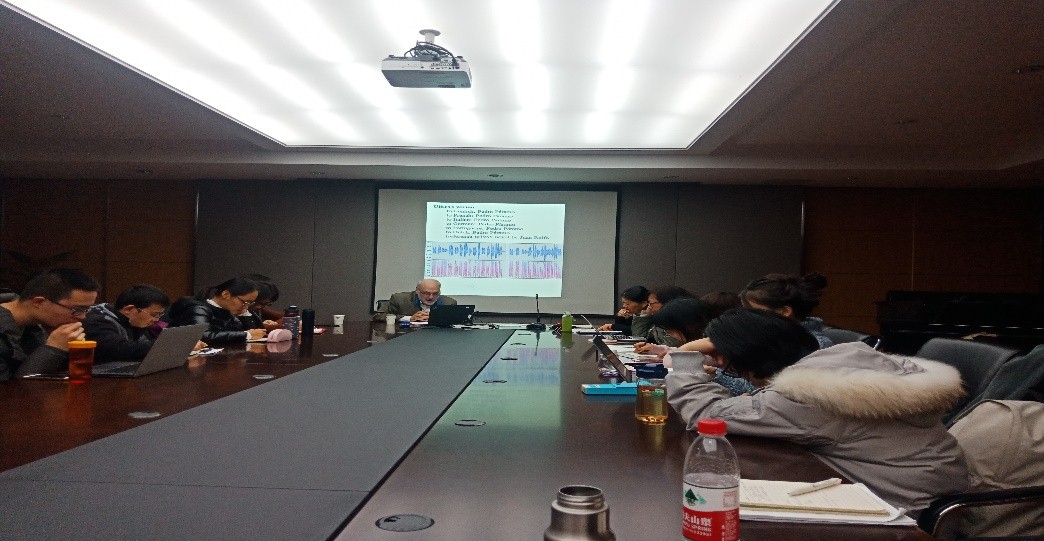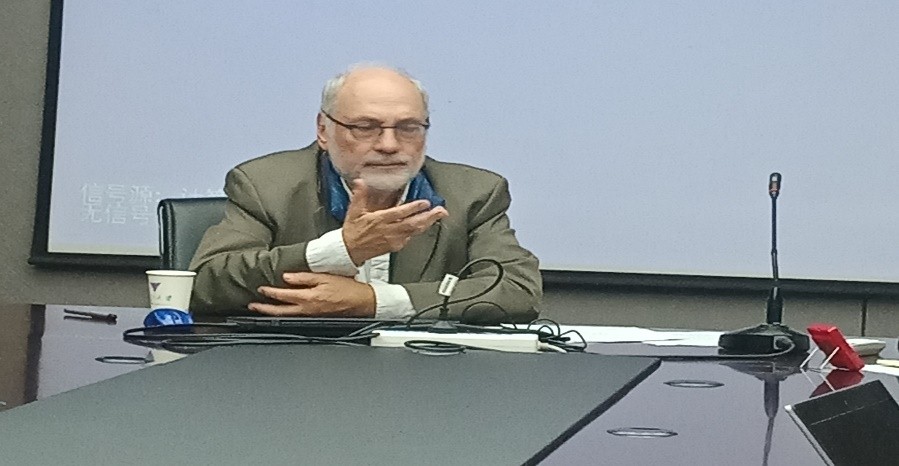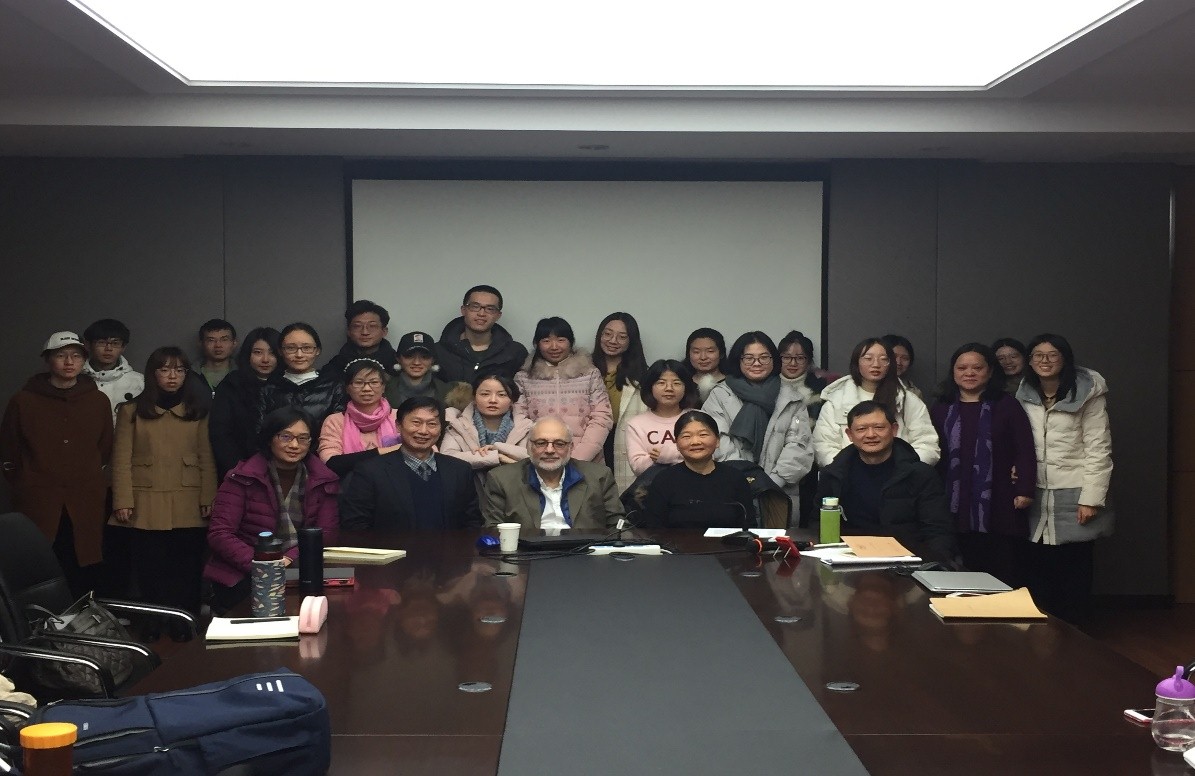
On December 11, Charles Bernstein, Chair Professor of English Department at the University of Pennsylvania and poet, gave a lecture entitled “Sound Writing and Double Talk” at Room 201 of Building East 5 . The lecture was hosted by Professor Gao Fen from the Institute of Foreign Literature.
The lecture was conducted in two aspects. The first was sound writing. Prof. Bernstein started with poetry and introduced sound writing. He concluded two kinds of writing: Sound and unsound. In his opinion, “homophonic translation” was a genre of “sound writing”. Sound writing provided a broader context for the homophonic imaginary. At its core, homophonic translation refused a Cartesian split between sound and sense, seeing sense as never more than an extension of sound. At every moment it refutes the idea that meaning could be displaced from sound or that reference has an arbitrary, rather than motivated relationship to acoustic rhythm, sound patterning and aural iconicity. From a pragmatic point of view, any individual poem would fall short of the homophonic sublime. In that sense, homophonic translations might be heard as pushing in a direction, correcting a course, re-embodying the word.

The second aspect is double talk. As Sid Caesar (a postwar American comic) used the term, it was homophonic translation of a foreign-language movie, opera scenario, or everyday speech into an improvised performance that mimicked the sound of the source language with made-up, zaum-like invented vocabulary. The best example of Caesar’s “double-talk” was a concert in which he moved through four languages, staring with French and moving to German and Italian, ending with Japanese. Caesar’s doubletalk used the full prosodic resources of verbal language, foregrounding intonation, gesture, rhythm, syntax, and sound patterning rather than lexical identification. Doubletalk resembled sound poetry, but it was tied to the specific sounds and rhythms of the language being parodied. It was homophonic translation not of specific text but of the texture of the source language.

Prof. Bernstein answered the questions from the students and teachers at the end of the lecture. Every attendee has gained a lot.

School of International Studies, Zhejiang University
Written by Wang Aisu
Translated by Zhou Xingchen
Edited by Xu Xueying
December 13, 2018



